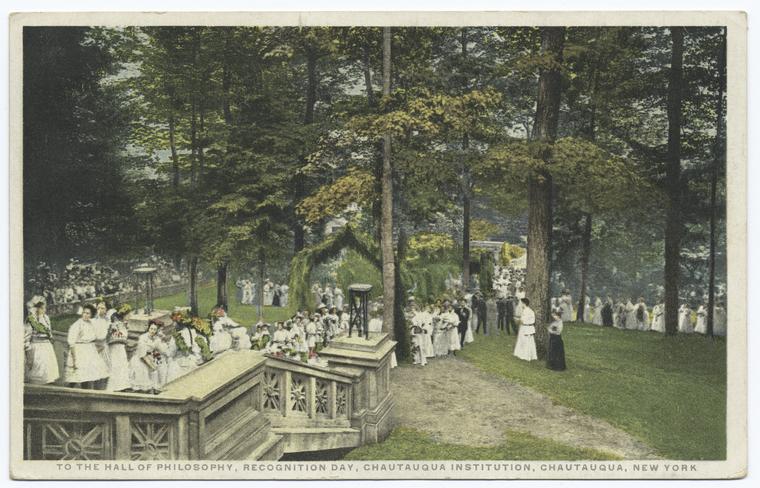In my previous post, I introduced Yoram Hazony’s project in his new book, Conservatism: A Rediscovery.
What, to Hazony, separates true conservatism from Enlightenment liberalism, and why is the former superior to the latter? To answer this, Hazony looks to the writings of major conservative thinkers in centuries past, such as John Fortescue, Richard Hooker, John Seldon, and Edmund Burke.
What unites these thinkers is their support for what Hazony dubs historical empiricism, and their distrust of universalist, rationalist theories founded on abstract reason. Quoting John Seldon, Hazony says of historical empiricism that by “this view, our reasoning in political and legal matters should be based upon inherited national tradition. This permits the statesman or jurist to overcome the small stock of observation and experience that individuals are able to accumulate during their own lifetimes (‘that kind of ignorant infancy, which our short lives alone allow us’) and to take advantage of ‘the many ages of former experience and observation’ which permit us to ‘accumulate years to us, as if we had lived even from the beginning of time.’ In other words, by consulting the accumulated experience of the past, we overcome the inherent weakness of individual judgment, bringing to bear the many lifetimes of observation by our forebears, who wrestled with similar questions under diverse circumstances.”
This is distinguished from the thought of the political philosopher John Locke, a key figure in the Enlightenment liberal tradition. Hazony identifies Locke as a rationalist and a universalist, whose approach to political philosophy stands in stark contrast to the historically grounded and experience-based vison of conservatism. Hazony explains: “Rationalists have a different view of the role of reason in political thought, and in fact a different understanding of what reason itself is. Rather than arguing from the historical experience of nations, rationalists set out by asserting general axioms that they believe to be true of all human beings and that they suppose will be accepted by all human beings examining them with their native rational abilities. From these, they deduce the appropriate constitution or laws for all men.” Perhaps Locke’s most famous work, his Second Treatise on Government, demonstrates this process in action. Locke’s approach is not an “effort to formulate a theory of the state from an empirical standpoint. Instead, it begins with a series of axioms that are without any evident connection to what can be known from the historical and empirical study of the state…From these axioms, Locke then proceeds to deduce the proper character of the political order for all nations on earth.”
As with all deductive reasoning, Locke’s axiomatic-deductive approach is only as strong as the assumptions on which it rests. But, Hazony says, “there is no reason to think any of Locke’s axioms are, in fact, true.” And in claiming the universal validity of these axioms and the systems deduced from them, rationalists recklessly seek to overthrow generations of accumulated experience in favor of something grounded in little more than their own armchair thought experiments. For if this axiomatic-deductive reasoning, untethered from experience, successfully “reveals to all the universal laws of nature governing the political realm, then there will be little need for the historically and empirically grounded reasoning of men such as Fortescue, Hooker, Coke, Selden, and Hale. All men, if they will just gather together and consult with their own reason, can design a government that will be better than anything that ‘the many ages of experience and observation’ produced in England. On this view, the Anglo-American conservative tradition—far from having brought into being the freest and best constitution ever known to mankind—is in fact shot through with unwarranted prejudice, and an obstacle to a better life for all.”
Conservatives reject the universal claims of rationalist liberals. It is simply beyond the powers of the human mind to create, from whole cloth, a universally valid system of rights, or a universally valid political order, equally applicable in all times to all peoples. However, one must be careful not to overstate this point. The conservative thinkers Hazony cites, along with Hazony himself, do admit that universally correct answers exist. For example, Hazony says while “there are certainly principles of human nature that are true of all men, and therefore natural laws that prescribe what is good for every human society,” the true nature of “these principles and laws are the subject of unending controversy.” Elsewhere Hazony reiterates the point: “Conservatives do believe there are truths that hold good in all times and places, but given the extraordinary variety of human opinions on any given subject, they are skeptical about the capacity of the individual to attain universal political or moral truths simply by reasoning about them.”
What separates empiricist conservatives from rationalist liberals is how to go about discovering what these universal laws are. Rationalist liberals believe they can be derived through human reason, and once known these universal laws can be applied to consciously construct a universally valid political order. Empiricist conservatives believe human reason can only provide an understanding that is very limited and partial, and it’s only through long periods of experience and trial-and-error, built up across generations, that we can attempt to more closely approximate these ideals in practice.
Further, the discoveries made through this evolved and experienced-based process will not be universally applicable. They will be shaped into different forms by the differing characters, experiences, constraints, and histories of each nation, and may manifest in different, often incompatible, but equally useful ways. Again quoting Seldon (whom Hazony ranks as the greatest of conservative thinkers), Hazony writes “no nation can govern itself by directly appealing to such fundamental laws, because ‘diverse nations, as diverse men, have their diverse collections and inferences, and so make their diverse laws to grow to what they are, out of one and the same root.’” But these laws and traditions of different nations, despite growing from “out of one and the same root” may be incompatible with each other, says Seldon, who writes that what “may be most convenient or just in one state may be as unjust and inconvenient in another, and yet both excellently well framed as governed.”
An analogy might be drawn by referencing an archery target. Suppose the middle of the target, a perfect bullseye, represents the “principles of human nature that are true of all men” and the “natural laws that prescribe what is good for every human society.” Rationalist liberals believe one can create a social order through human reason that operates squarely on the bullseye. But empiricist conservatives see it differently. Human reason is far too feeble a guide to accomplish this. Different peoples and different nations, through trial and error and hard-earned experience, can try, over time and bit by bit, to move closer and closer to the bullseye. One nation may end up in a spot six inches above the center, while another ends up six inches below, with a third six inches to the left and a fourth six inches to the right. Each of these nations have developed systems and institutions that are equally close to correct, yet the institutions and traditions of each will be in many ways different from or incompatible with each other. Additionally, they didn’t end up where they were through sheer chance. Where each nation ended up had its own path-dependent logic based on its own unique history and circumstances. So even though the customs and institutions for each may be equally valid in a sense, they won’t be universal or interchangeable. What works at the northern-most point won’t work as well in the western-most point, and so on.
Because of this, Hazony writes, conservatism does not attempt to reach beyond its borders, or attempt to influence or interfere with other nations. “Each nation’s effort to implement the natural law is in accordance with its own unique experience and conditions. It is therefore wise to respect the different laws found among nations, both those that appear right to us and those that appear mistaken, for different perspectives may each have something to contribute to our pursuit of the truth.” There is no similar basis for such tolerance or respect in Enlightenment liberalism. For if the correct laws can be known through simply consulting universal human reason, and the validity of these reason-derived laws are always and everywhere valid, we have no more reason to respect the experience and character of other nations than we do to respect the accumulated experience of the past within our own society. If they seem contrary to what you can determine through reason, we can freely dispense with them.
In the next post, I will review Hazony’s views on conservatism and nationalism, and why he sees these ideas as necessarily connected.

































